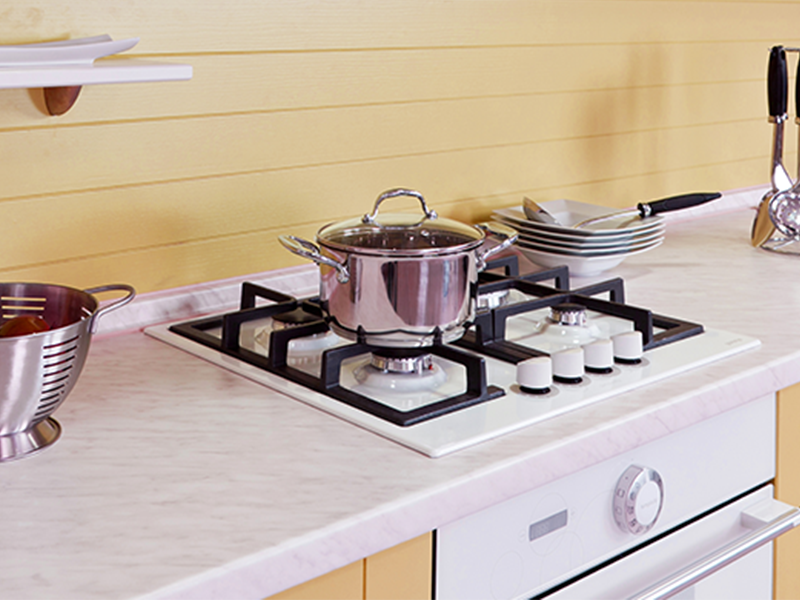In modern kitchens, the range hood plays a crucial role in maintaining a clean and healthy cooking environment. One common question that homeowners often have is whether recirculating range hoods can set off smoke alarms. In this blog, we'll explore the functionality of recirculating hoods, their impact on air quality, and whether they pose a risk to triggering smoke alarms.
Understanding Ductless Range Hoods: Recirculating range hoods operate differently from their vented counterparts. Instead of expelling air to the outside, recirculating hoods capture cooking fumes and odors through a filtration system before releasing the purified air back into the kitchen. This design makes them a popular choice for homes without access to external ventilation.
Smoke Alarms and Sensitivity: Smoke alarms are designed to detect particles in the air that are associated with combustion, such as smoke and soot. However, they vary in sensitivity and may be triggered by different substances, including cooking fumes. Understanding the sensitivity of your smoke alarms is essential to determine whether recirculating hoods could set them off.
Factors Influencing Smoke Alarm Activation: Several factors contribute to whether a recirculating hood will trigger smoke alarms:
-
Cooking Techniques:
- High-heat cooking methods, like grilling or pan-searing, may produce more smoke and increase the likelihood of setting off smoke alarms.
-
Quality of Filtration:
- The efficiency of the hood's filtration system is crucial. High-quality filters can capture a significant amount of cooking byproducts before releasing the air back into the kitchen.
-
Maintenance:
- Regular maintenance, such as cleaning or replacing filters, can impact the performance of the recirculating hood. Neglecting maintenance may decrease its effectiveness and increase the risk of setting off smoke alarms.
-
Proximity to Alarms:
- The placement of smoke alarms in relation to the range hood can also affect whether they are triggered. Installing alarms further away from the cooking area may reduce the likelihood of false alarms.
Tips for Minimizing Smoke Alarm Activations: To minimize the chances of setting off smoke alarms when using a recirculating range hood, consider the following tips:
-
Use Proper Cooking Techniques:
- Opt for cooking methods that produce less smoke, and avoid excessive heat when possible.
-
Invest in High-Quality Filters:
- Choose recirculating hoods with effective filtration systems, and regularly clean or replace filters as recommended by the manufacturer.
-
Maintain Your Range Hood:
- Perform regular maintenance on your range hood to ensure optimal performance.
-
Install Alarms Strategically:
- If possible, install smoke alarms at a reasonable distance from the cooking area to reduce the risk of false alarms.
Recirculating range hoods are a convenient solution for homes without external ventilation options. While there is a potential for them to set off smoke alarms, understanding the factors involved and implementing preventive measures can help you enjoy clean air in your kitchen without the inconvenience of false alarms. As with any appliance, proper use and maintenance are key to ensuring both the effectiveness of the range hood and the peace of mind of a well-ventilated kitchen.

All Tieasy range hoods are equipped with both ventilable and recirculation modes, buy now to get 31% off for Christmas, CLICK HERE to buy!





Leave a comment
All comments are moderated before being published.
This site is protected by reCAPTCHA and the Google Privacy Policy and Terms of Service apply.